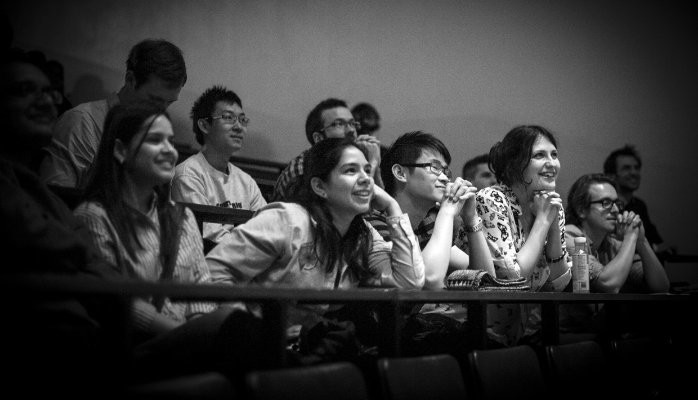
Are you really present in your life?
March 7, 2016If you were present more often what would change?
Recently I was watching Australia’s Got Talent with my children when I was privileged to witness Mick the Poet recite an Australian poem. My apologies to Mick as I have not been able to establish the name of the poem, or its author and am perhaps showing my ignorance….The thing that struck me while I watched was Mick’s mindfulness, his presence in the moment. And further, the audience appeared to be completely present in the moment too. In the purest sense they were probably not mindfully aware of their body and mind and they perhaps were not even consciously deciding to be present in the moment. Yet the stillness and the focus on one experience for that minute was an informal mindful experience.
Thank you Mick.
 Mindful experiences are everywhere, whenever you are fully focused on the task at hand and in the present moment you are experiencing mindfulness. The concern in our modern life, is that nearly half of the time we are not attuned to the task at hand – our mind is wandering somewhere else. Matt Killingsworth and his colleagues at Harvard have done a lot of research in this area and conclude: “a human mind is a wandering mind, and a wandering mind is an unhappy mind. The ability to think about what is not happening is a cognitive achievement that comes at an emotional cost.” (Hear Matt Killingsworth Ted Talk about moment to moment experience related to happiness)
Mindful experiences are everywhere, whenever you are fully focused on the task at hand and in the present moment you are experiencing mindfulness. The concern in our modern life, is that nearly half of the time we are not attuned to the task at hand – our mind is wandering somewhere else. Matt Killingsworth and his colleagues at Harvard have done a lot of research in this area and conclude: “a human mind is a wandering mind, and a wandering mind is an unhappy mind. The ability to think about what is not happening is a cognitive achievement that comes at an emotional cost.” (Hear Matt Killingsworth Ted Talk about moment to moment experience related to happiness)
It’s not hard to be mindful and its not easy, it does takes practice like all awareness raising and skill building activities. After making the decision to practice mindfulness it takes commitment to be present in your life. Practicing mindfulness in the formal sense involves being still and experiencing whatever is here, without judgement, in the present moment. Deciding to make space regularly, to notice what is here just now. This is important because it helps us notice the informal mindful moments, like listening to Mick’s poetry recital…. or listening to a loved one fully, purposefully, present. At work it might mean that I notice my heartbeat raise when I am challenged earlier than I would have before, because I am more aware moment-to-moment, then I can choose how I respond, rather than just reacting. It might be that I notice a micro facial expression of a colleague in a meeting, and my own thoughts in relation to that person’s expression, and now I can check in with myself or my colleague in ways I didn’t before. Noticing the present, being focused on the task at hand builds my emotional regulation and allows me more choice in my decisions.
What you can do to be more present…
Mindfulness training is not a panacea to all our problems, it is an invitation to build our attentional skills and as a result our awareness capacity. With this growing capacity for attention and awareness we have the opportunity to become more attuned to our environment, our choices our relationships and our own possibilities.
Are you curious enough to see how formal mindfulness training might affect you in the longer term? Would improving your attention and awareness capability make a difference to your work? What if your whole team grew its attention and awareness capability, how could that change your culture at work?
The programs offered by SKJ Consulting and The Potential Project rely on the latest neurological, psychological and business research, to help you and your organisation raise performance and reduce stress.
This event was posted by Sharee Johnson.
Bookmark this event.
